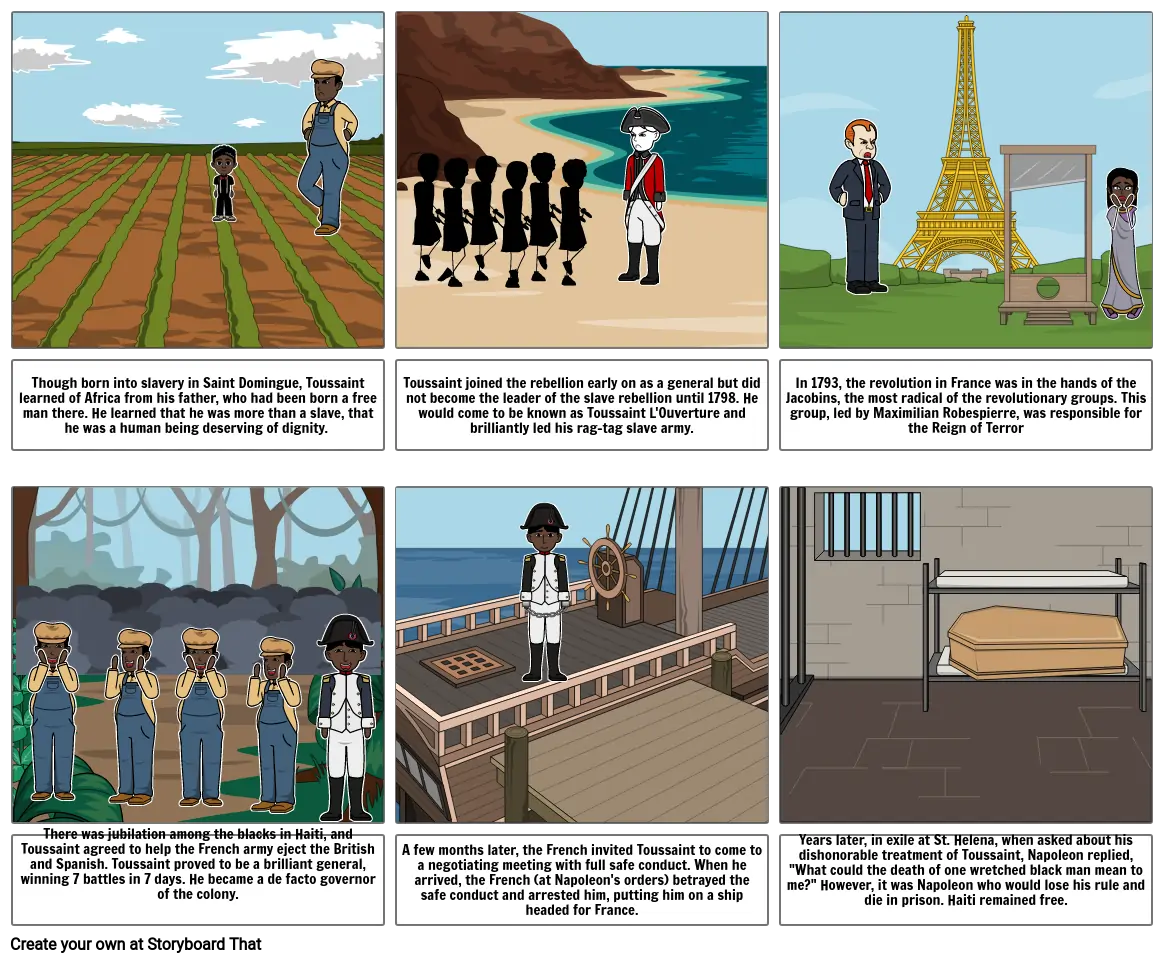Toussaint

Storyboard-Text
- Though born into slavery in Saint Domingue, Toussaint learned of Africa from his father, who had been born a free man there. He learned that he was more than a slave, that he was a human being deserving of dignity.
- Toussaint joined the rebellion early on as a general but did not become the leader of the slave rebellion until 1798. He would come to be known as Toussaint L'Ouverture and brilliantly led his rag-tag slave army.
- In 1793, the revolution in France was in the hands of the Jacobins, the most radical of the revolutionary groups. This group, led by Maximilian Robespierre, was responsible for the Reign of Terror
- There was jubilation among the blacks in Haiti, and Toussaint agreed to help the French army eject the British and Spanish. Toussaint proved to be a brilliant general, winning 7 battles in 7 days. He became a de facto governor of the colony.
- A few months later, the French invited Toussaint to come to a negotiating meeting with full safe conduct. When he arrived, the French (at Napoleon's orders) betrayed the safe conduct and arrested him, putting him on a ship headed for France.
- Years later, in exile at St. Helena, when asked about his dishonorable treatment of Toussaint, Napoleon replied, "What could the death of one wretched black man mean to me?" However, it was Napoleon who would lose his rule and die in prison. Haiti remained free.
Über 30 Millionen erstellte Storyboards

